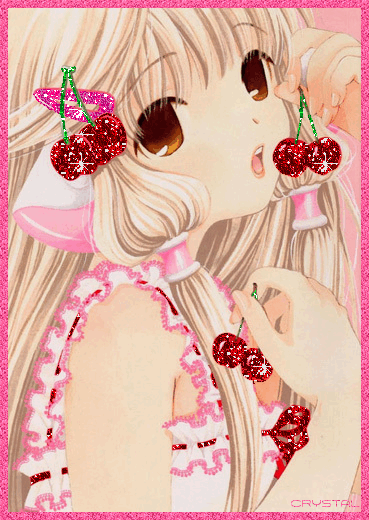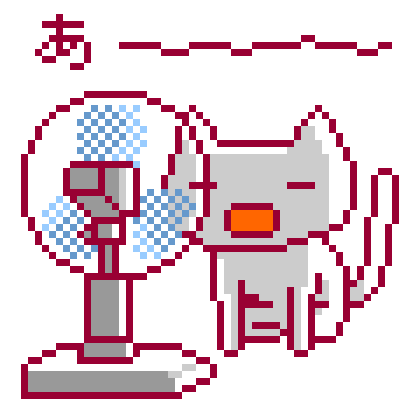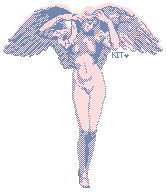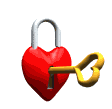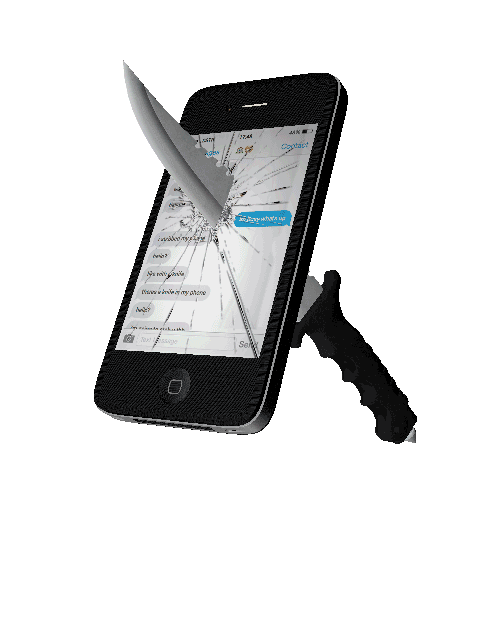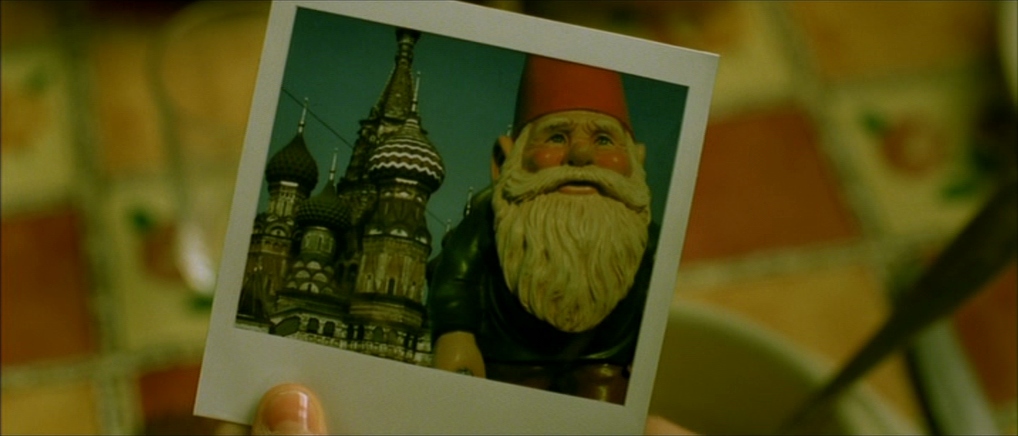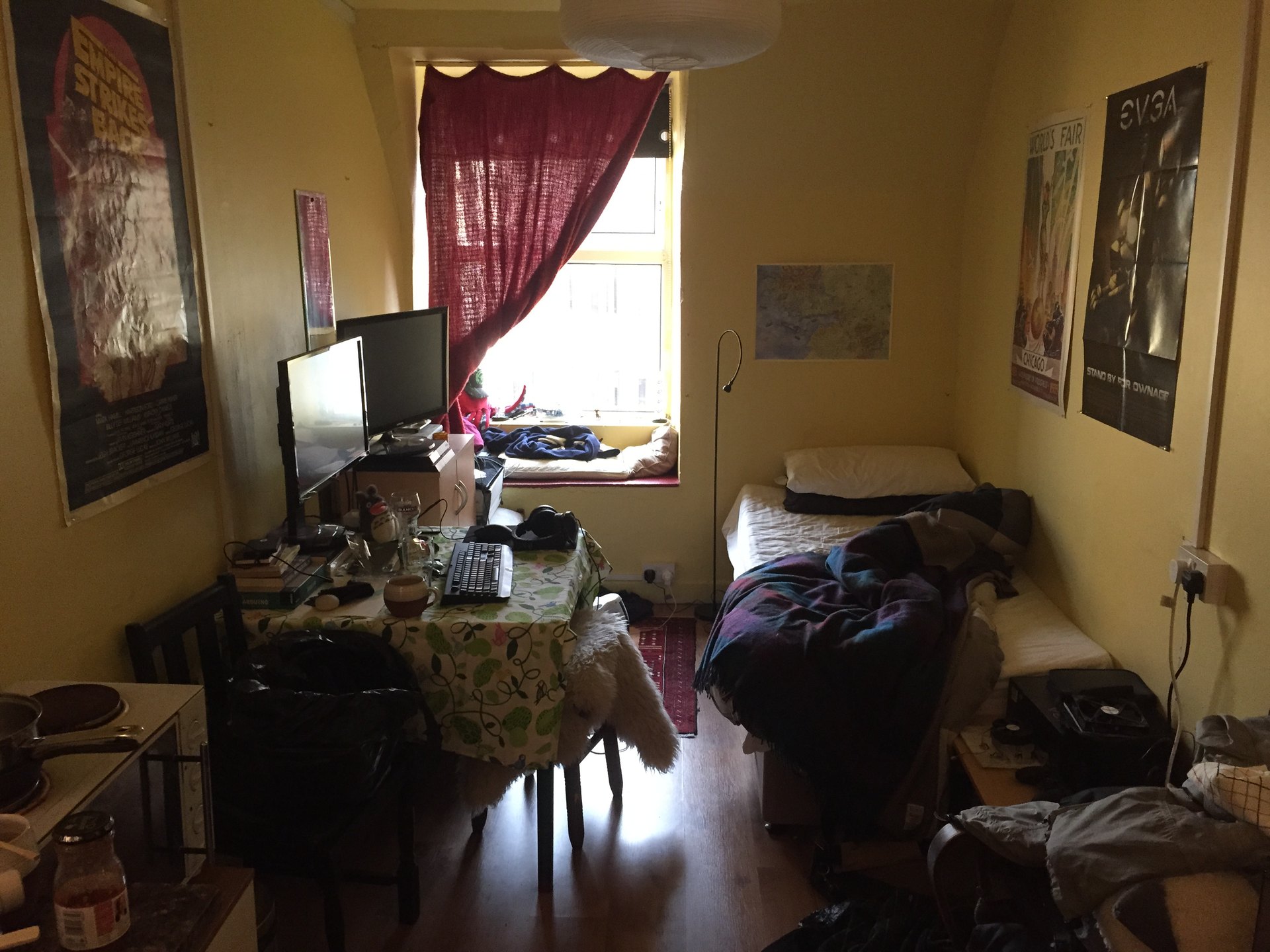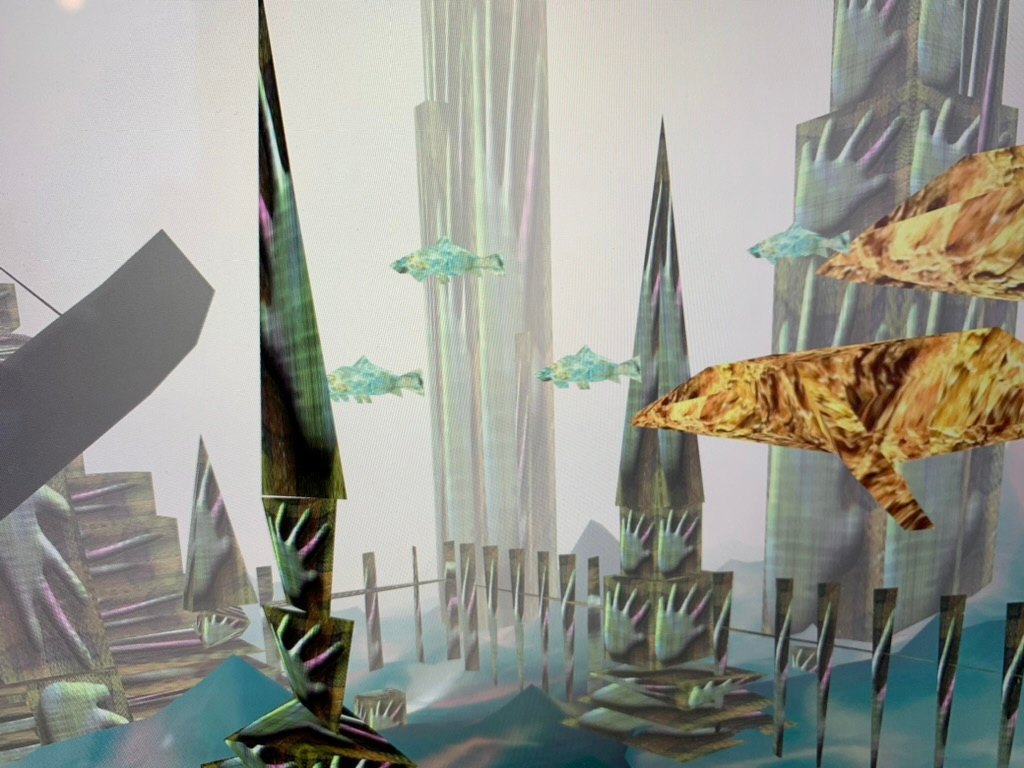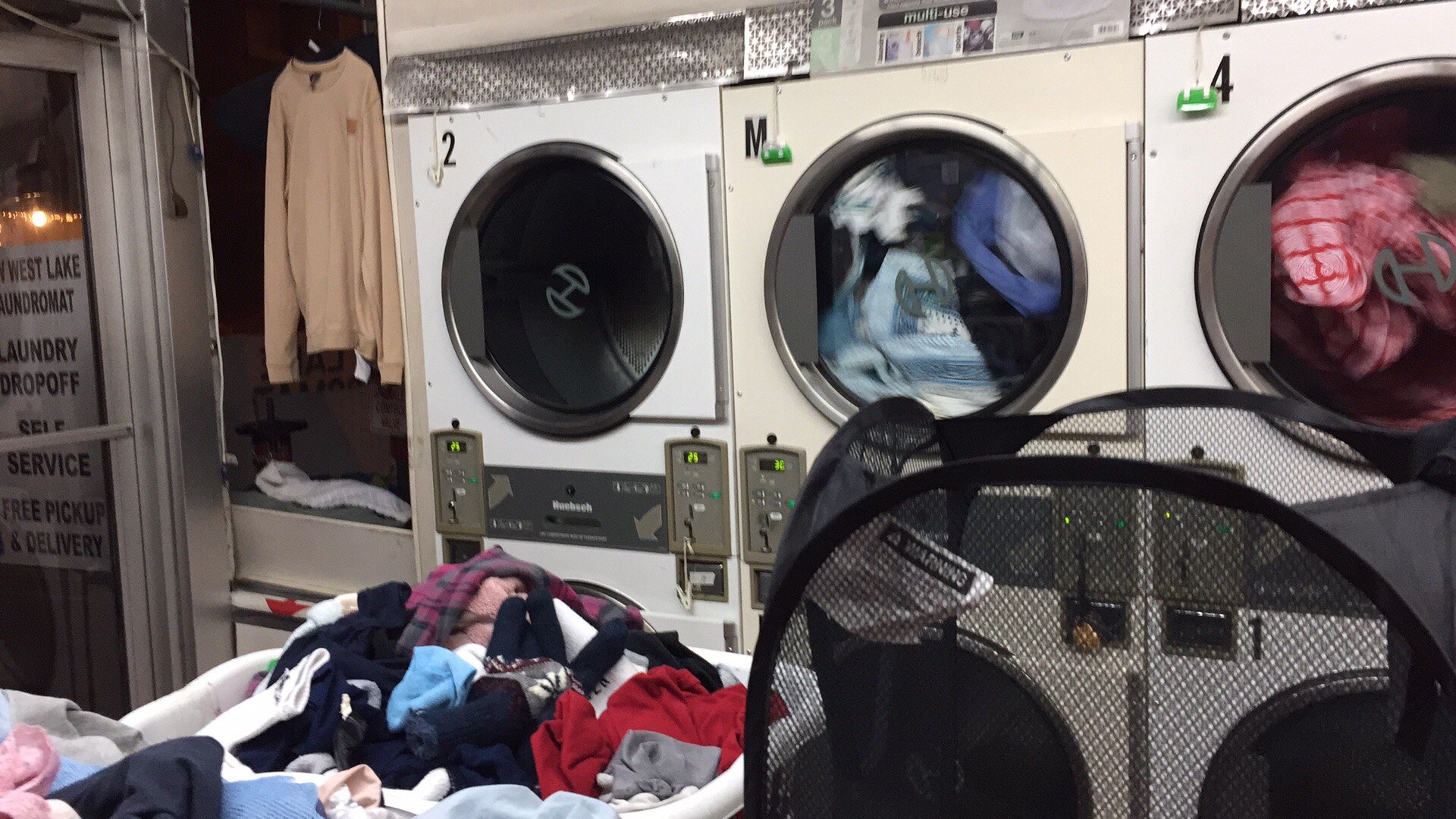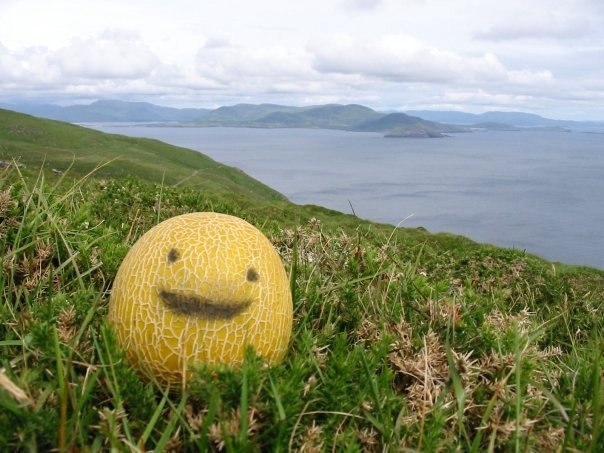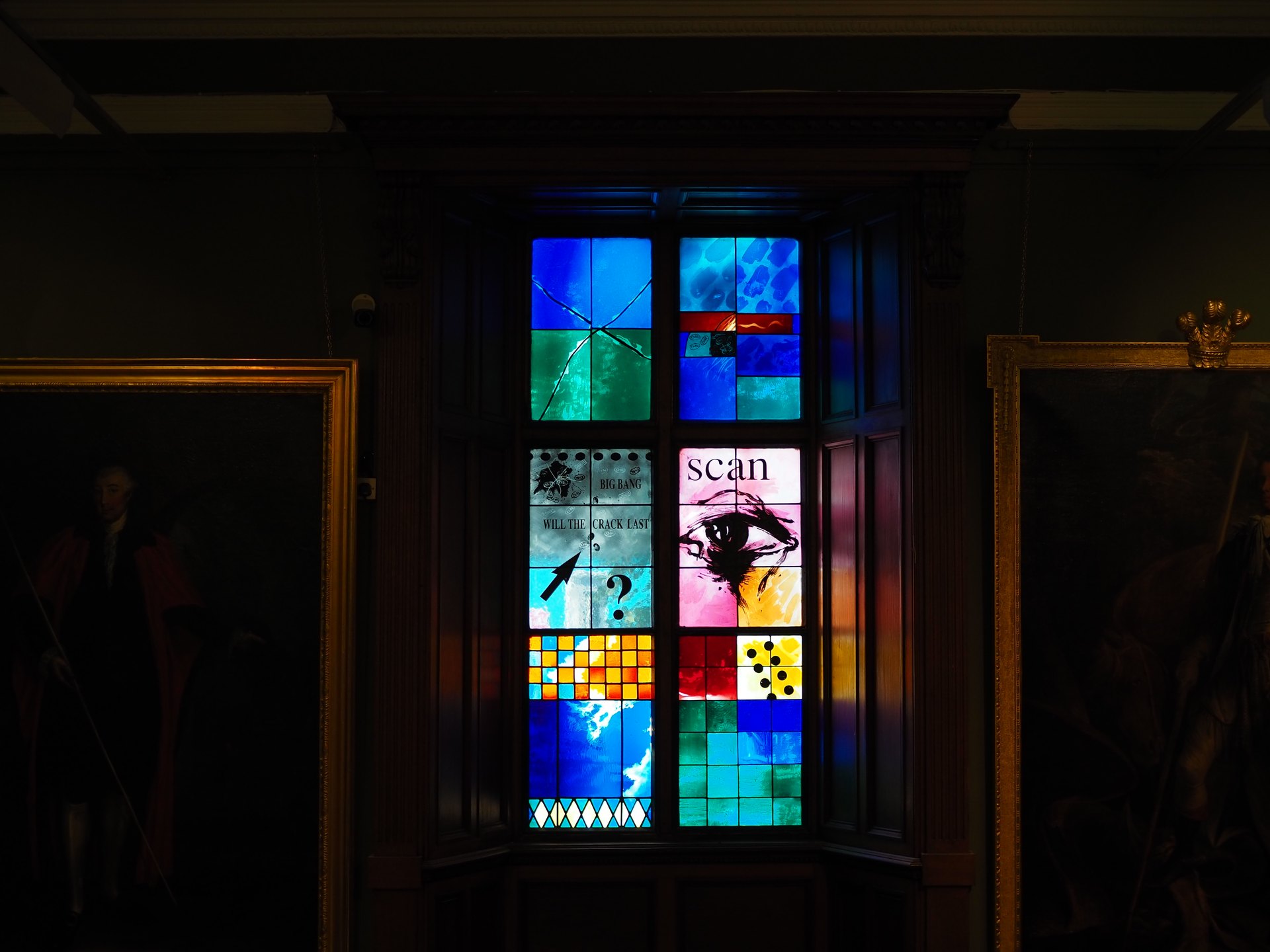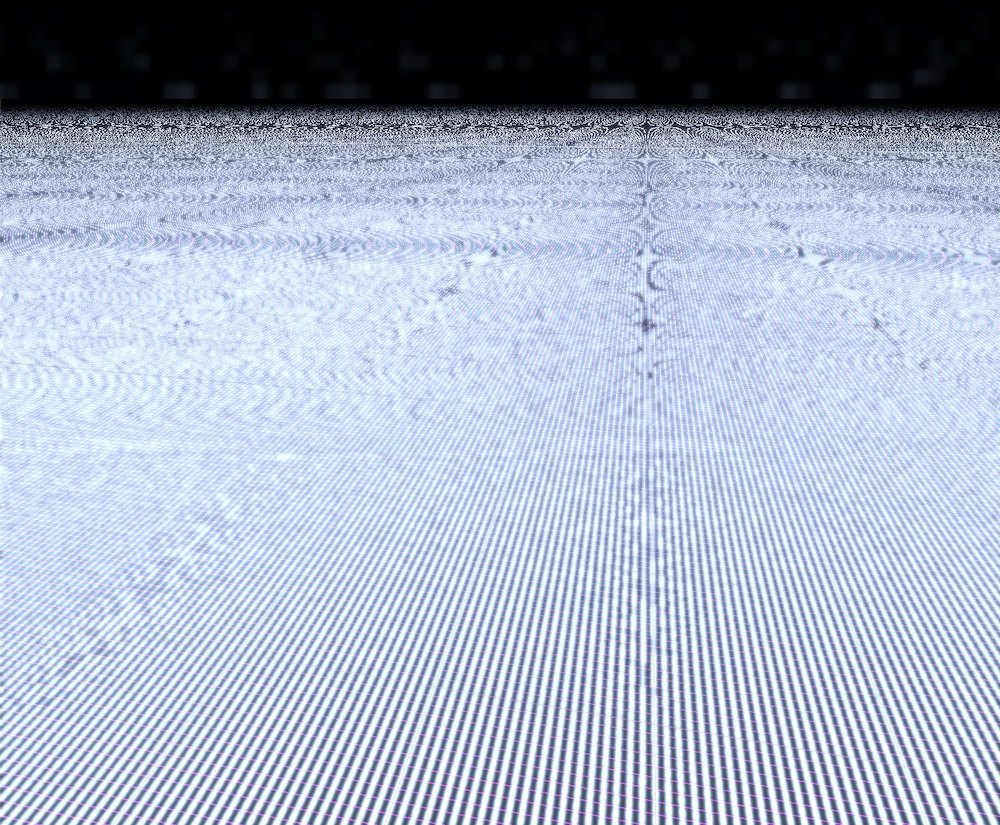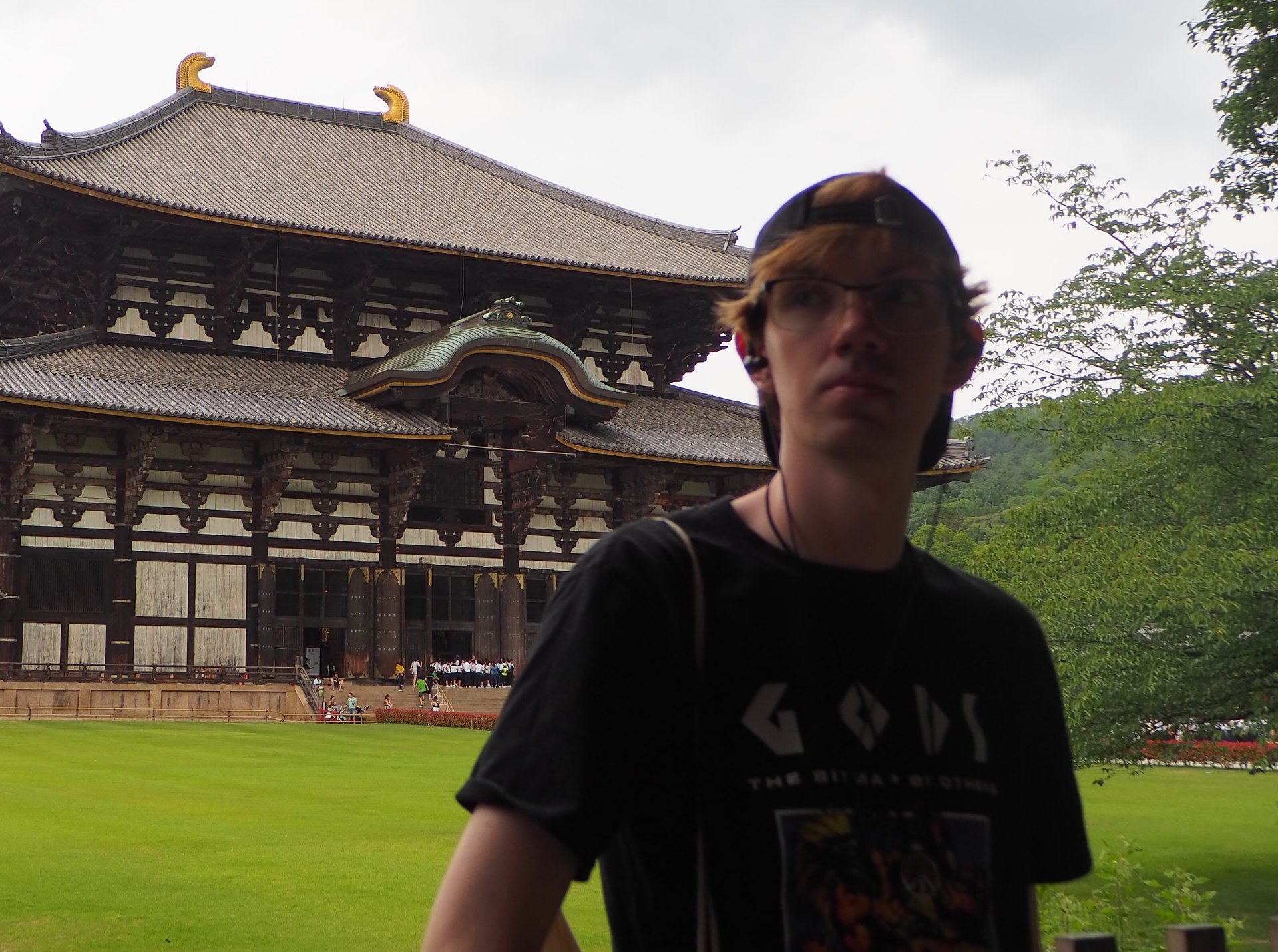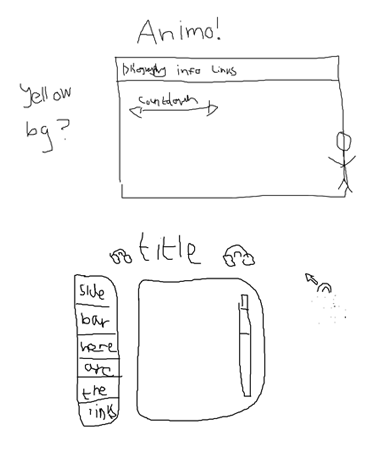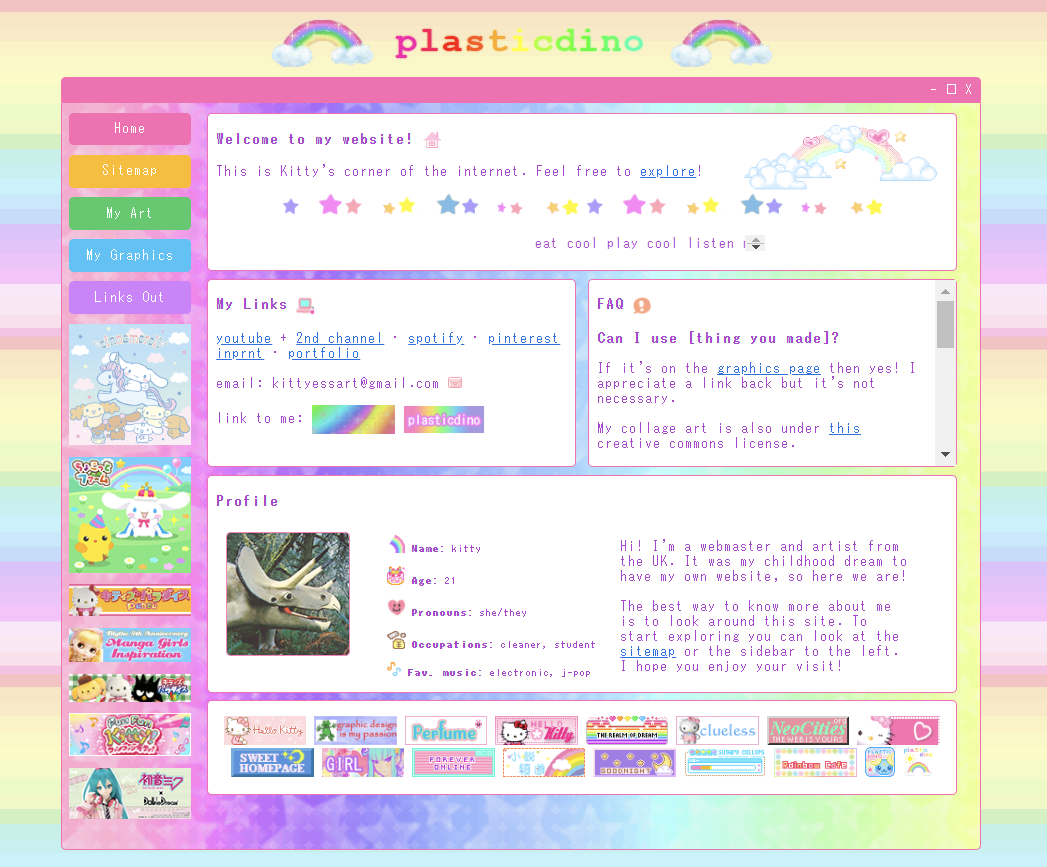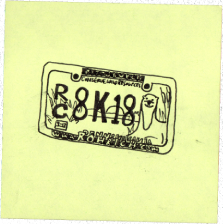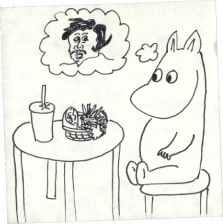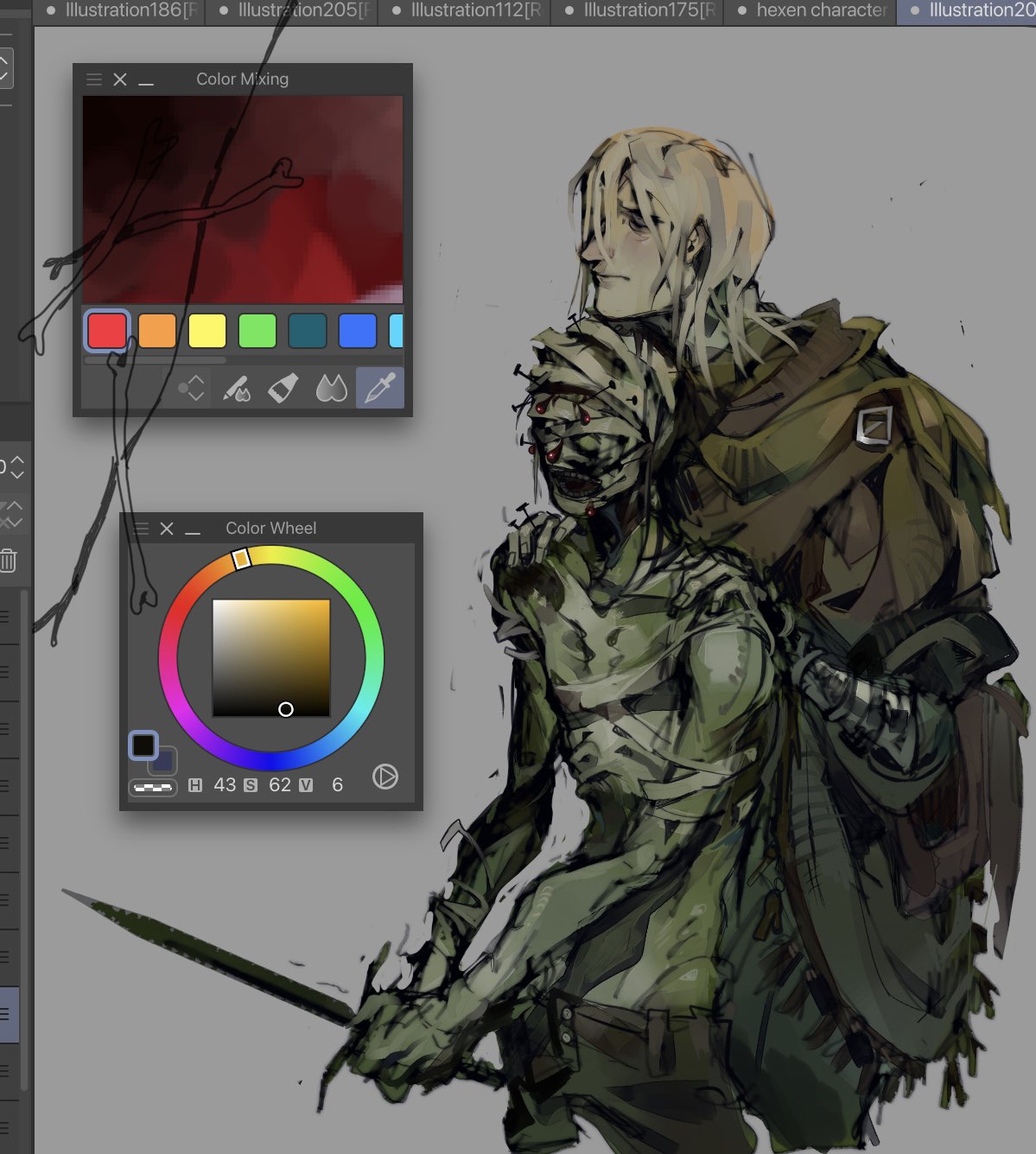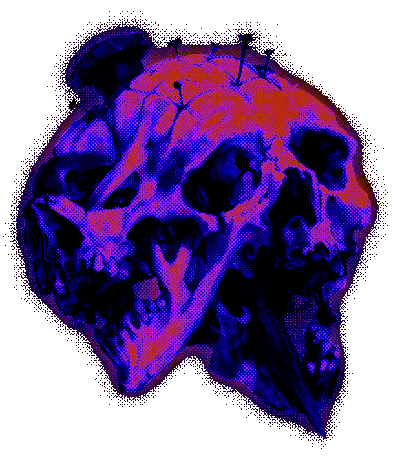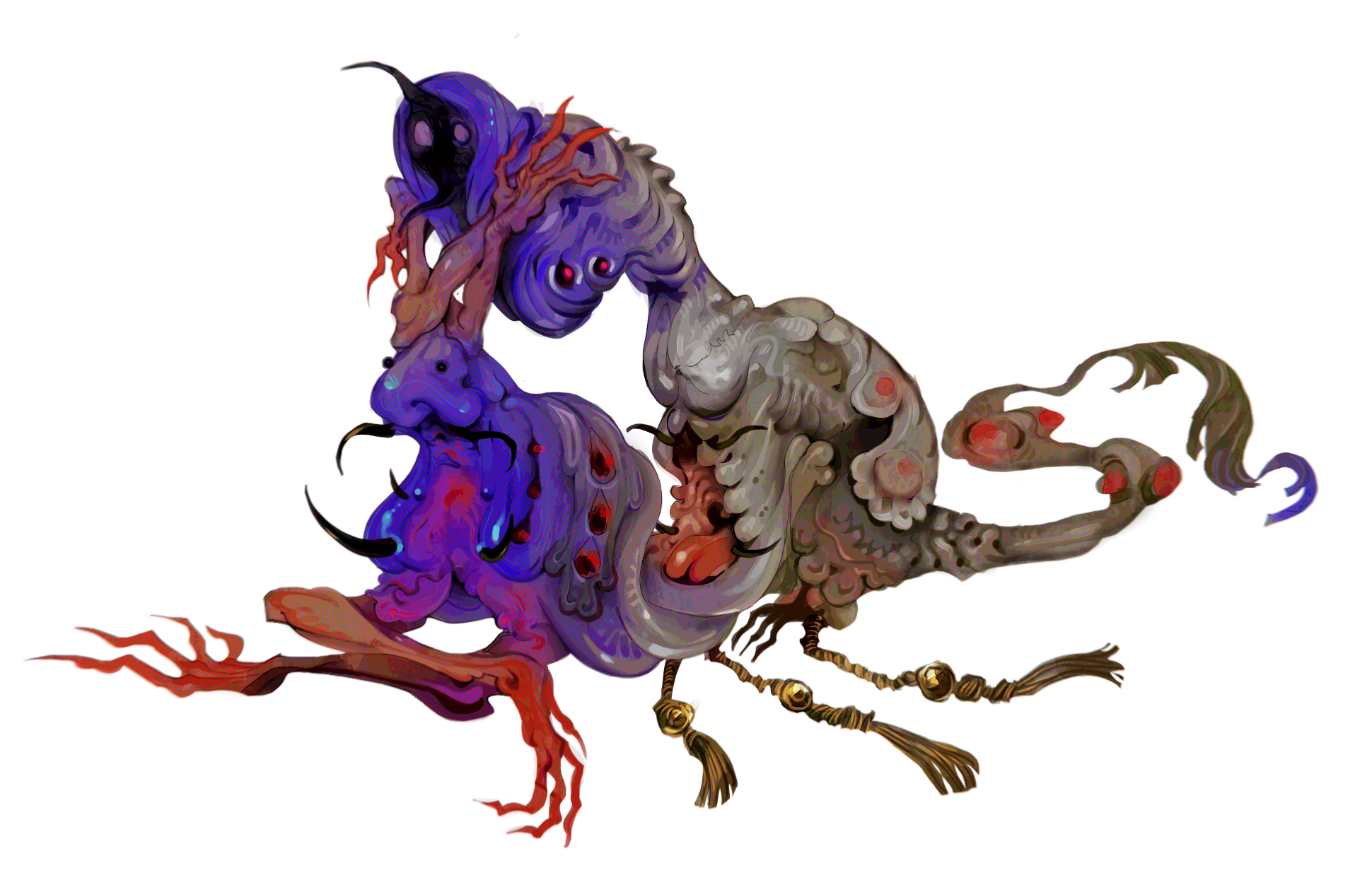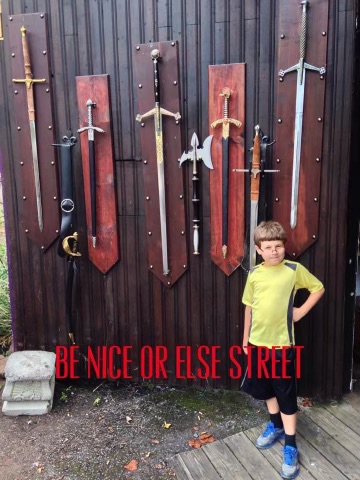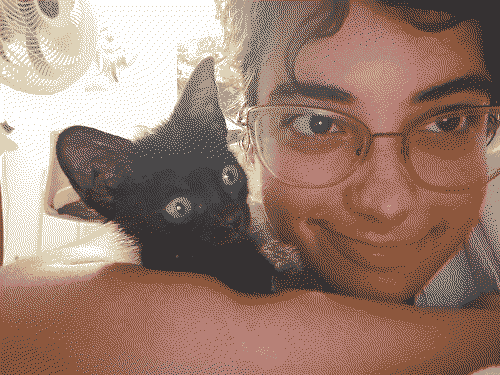In the beginning, man created the world wide web. It was finite.
Instead of scrolling for hours on end, perpetually falling forward onto posts, "netizens" in the 90s would follow trails of links to websites. Clunky, by today's standards, but often made with love, hilarity and countless hours.
The homemade website has survived. Amidst the deaths of other old web presences like chat rooms and Flash games, Neocities, created by  Kyle Drake in 2013, is a free, open-source website host where "webmasters" have formed an alternative approach to the internet.
Kyle Drake in 2013, is a free, open-source website host where "webmasters" have formed an alternative approach to the internet.
With it, a quiet online movement emerged.
"When we first launched Neocities, it was just a hosting service with not a lot of other stuff," Drake said in a 2020 Software Sessions podcast episode, hosted by Jeremy Jung. "Then we added a social networking component to that where you can make page updates and have comments. I've actually been working on some stuff to improve that and be like, 'Hey, you're the fifth most popular site on Neocities.'"
Drake's efforts came to fruition in the form of a "Most Followed" filter on the browsing page. I, among hundreds of thousands of Neocities visitors, used it to find Daniel Murray, a key player behind the Web Revival.
The Web Revival movement is inspired by the DM: I thought at one point it would be fun if people in the Web Revival could be code-niks, after beatniks, but that one never stuck. But the "Web Revival" phrase did nice.American Folk Revival movement of the 60s, taking the latter's focus on self-expression and love during an era of rapid mechanisation and applying it to the current digitization of the world.
"What we had was hobbyists, people from alternative political backgrounds, people who were into using retro tech, older people who were nostalgic for the web and younger people who were excited to discover and alternative to social media," Murray said. "There were all these different groups and reasons for being here, and it became evident that we needed a word to describe what this part of the web was like."
Murray is a 30-year-old from Ireland, which was apparent when he greeted me somewhat musically over the phone. As he DM: I've gotten halfway through and all the bits are spread out on my bed, and now there's a message saying, "Next, use your specialized circuit board removal tool to remove the circuit board." That'll be a challenge to figure out later.disassembled a Mac Mini, he told me how he created melonking.net to display pictures of a -- you guessed it -- melon that he took as a kid. From there, he expanded melonking into a hub for web-related information, online events and, almost naturally, manifestos.
Melonking.net is arguably one of the most influential websites on Neocities, with its plethora of tutorials and code snippets for other webmasters to use and personal projects potent with the earnest spirit of the old web.
Despite his example, there isn't a stylistic expectation for how people participate within the Web Revival movement. It serves as an umbrella for many internet niches. In fact, Murray pushed for its current name during its early stages of development "purely because it was an impartial title."
The niches have an evolving set of principles in common that tie back to the open exchange of information, prioritizing humanity and its ability to delight -- and behaving in loving ways.
It's almost impossible to find pages that don't fit the bill: the link-hopping rabbit-hole is chaotic, engaging, helpful and uniquely nostalgic for something I've never experienced before. Some webmasters accidentally uphold the Web Revival's ideology through practice. Others, like Kitty, the creator of the popular website plasticdino who asked to withhold her last name, approach it with purpose.
Kitty's introduction to coding goes hand-in-hand with her interest in K: You can make web pages be whatever you want, and that includes art.
MB: Is ASCII art included in that?
K: Um, I would say so. Yeah. Um, yeah. I think it could be for sure.
(So probably not)
ᓚᘏᗢnet art, an online art movement that emerged in the 90s and utilizes web pages as blank canvases. Plasticdino, as the paint on that canvas, is soft, bright and sweet like seasonal marshmallows. As her contributions and commitment to net art grew, she began rejecting social media and adhering to Web Revival's focus of decentering the monetization and distrusting norms of social media platform corporations.
"My brain and social media, it just doesn't work," Kitty said.
Using social media platforms can be a detriment to users' mental health. Negative mental health effects, such as anxiety and depression, are clearly related to heavy use of social media, according to an open-source literature review co-curated and summarized by Jonathan Haidt.
Navigating Neocities, in comparison, requires intention and makes for a more peaceful online experience, said Loren ******, the webmaster of the popular website ribo.zone.
"There's an agreement between webmaster and visitor: opting in versus opting out," Loren said. "The way I experienced (social media was) everyone at each others' throats for no good reason."
For someone to create a website with Neocities, they need to have a fundamental understanding of HTML. That means offensive content is not only difficult to find, it's difficult to create, Kitty said.
"Maybe there is something good about the fact that there is a learning curve to HTML, because it does keep some bad actors away," Kitty said. "Because the follower base is smaller, there's almost no reason to. Why bother?"
She's right: the amount of people who use Neocities is dramatically smaller than those who use social media platforms. Currently, the most-followed website, goblin-heart.net, has less than 5,000 profile followers. However, it has over 14 million views. In comparison, the most popular Instagram accounts have hundreds of millions of followers.
Disconnecting from social media K: I wear alternative fashion sometimes, and people will be like, "Oh, wow, I love your outfit. Are you on Instagram?" and then obviously, I have to be like, "No I'm not," which feels kind of lame.
MB: Do you ever give people your Neocities?
K: I do, which is, really, it's kind of cringe. I should probably stop doing that. The URL is quite long, so it's awkward to be like, "You can follow me on plasticdino.neocities.org." I've considered getting business cards.in a world heavily influenced by online interactions comes at a cost, making the maintenance of in-person relationships challenging, Kitty said.
"You have to be at peace with letting some people go," Kitty said. "It's hard, actually."
That's why there are plenty of webmasters who keep a presence on social media platforms, such as Vincent *******, the webmaster of the popular website uncannyvalley.
Vincent's website is a breath of smoke-choked air in the sea of glitter and neon that prevails over Neocities' retro-partial webmasters. Upon entry, "*soggy metal clanking sounds*" welcome visitors to the grungy layout that is both inspiring and off-putting, with dark metal frames and quivering creatures imagining a Crashbox intro from hell.
If that wasn't intimidating enough, Vincent's replies to my emails were. Where my other sources indulged my poor overeager self by saying they were "honored" and "very flattered," Brosche opted for a "yeah why not." I was scared shitless.
Thankfully, it turns out people who agree to a stranger's interview request are likely amicable, and Vincent was not an exception. Between the details of his artistic pursuits, he told me he has accounts on social media platforms for keeping in touch with friends -- V: But I fucking hate Tumblr. I hate it. Least favorite website ever.
MB: Why? What's wrong with it? I was never a Tumblr kid.
V: ...Good. I don't want to offend you with what I'm about to say.
MB: You can speak freely.
V: I just find them annoying. Sorry. I don't like posting art and having people comment, "Oh, my little scrungly," underneath it. Not to a degree where I would start being mean to them or anything, obviously, I don't want to put hate into the world, but oh my God leave me alone. It got to the point where even getting positive comments, which, you know, you should be happy about if you get those, I just didn't feel anything other than maybe mildly annoyed.and shitposting -- while his website is largely meant for himself.
"I don't really interact with people because of my website," Vincent said. "To me, it's honestly a seclusive space."
All of the webmasters I spoke with share his prioritization of independent self-expression on their websites, rather than using Neocities as a means for interaction.
Desteny *********, the webmaster of the popular website doqmeat, fills his website with dozens of entries spanning hobbies, favorite media, interests and day-to-day events, all tied up with scrapbook-like textures and pastels.
Ben *******'s ben-cool-webpage is just about what it says on the tin, with quirky, minimalist design elements and a "blabbering on at absurd length."
"A lot of people have serious issues with other people knowing about them, and I understand that when there's a tangible consequence, but I really am detached (from) the idea of some person who I'm never going to hear from reading something on my website," Ben said. "If they're just gonna read about how I thought I was aromantic for a year and then go away forever, that's fine."
Neocities appears exhibitionist, with the community largely built on passive yet constructive communication, like tutorials and blog posts endearingly addressed to an abstract presence. Interaction, apart from the occasional forum or coding competition, is DM: I think it's to do with the weight of what it really means to follow someone on a Neocities site. With social media, you can just make an account and follow someone, and that's the full effort. In most cases, if someone's on Neocities, they have probably spent dozens of hours working on that website, and for them to then follow you, that feels like a huge honor, and it feels like your site is immensely important and connected within that space.implied. Yet the webmasters I spoke with described the importance of the positive, slow-paced community -- and how it's growing.
"There are a lot of teenagers coming to Neocities," Kitty said. "A lot of people really, really hated this, because I think to them, it shattered this sense of, 'We're not like the other internet users. We're on Neocities so we're enlightened.'"
Veteran webmasters anticipate a potential culture shift.
"I joined because I remembered what the web was like when I was little,” Murray said. “The kids joining now, they never knew the early web, so for them, they're discovering this alternative version of what technology can be for the first time."
Loren of ribo.zone, who uses they/them pronouns, disconnected from social media L: I feel like I don't know how to express myself without CSS anymore. I feel very limited. Anything that I have to say that's of any value, I would just put on a web page. What do I actually have to share that fits in 300 characters?long ago and found anonymous blogging to be a vital outlet for developing their sense of self. Foundationally anonymous platforms like Neocities could be used for webmasters to explore countless facets of themselves, given its self-motivated yet supportive culture.
"These personal websites give people the independence and the chance to explore their own ideas and their own identity and begin to form the basis of what will become their future," Murray said.
Neocities contains a community that somehow rejects both in-person organizational norms and modern online spaces, based on the simple act of existing and helping others exist on the platform. It is simultaneously selfless and selfish, all the while advocating and representing a mode of online interaction without psychological harm built in.
"What the modern web has revealed is that when you make something simpler to use, people don't really care about the autonomy of homesteading," Drake said. "My proposition has never been to just get rid of Twitter or Facebook or whatever. It's more to remind people that creativity still matters."
It's difficult to tell if younger webmasters raised on social media platforms will influence Neocities culture or vice versa, Desteny said. Regardless of how contained Neocities is, its webmasters challenge the idea of how people can interact online.
"Being on Neocities has made me more aware. 'Wow, nice people do exist on the internet.' It makes me more hopeful for the internet as a whole," Desteny said. "It's not filled with these angry people looking to argue with you 24/7, it's also filled with people who just want to create things and have a nice chat with you."





